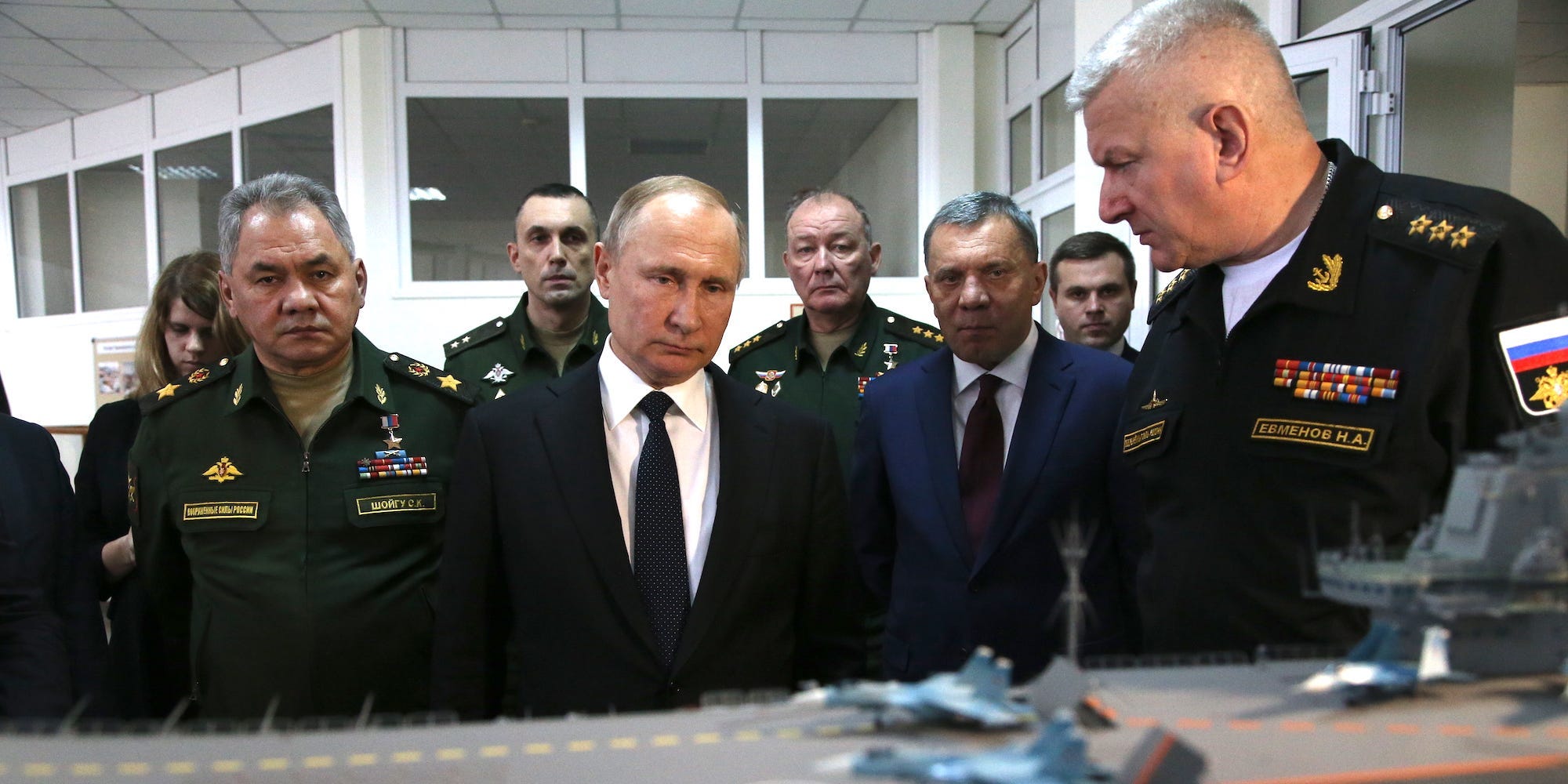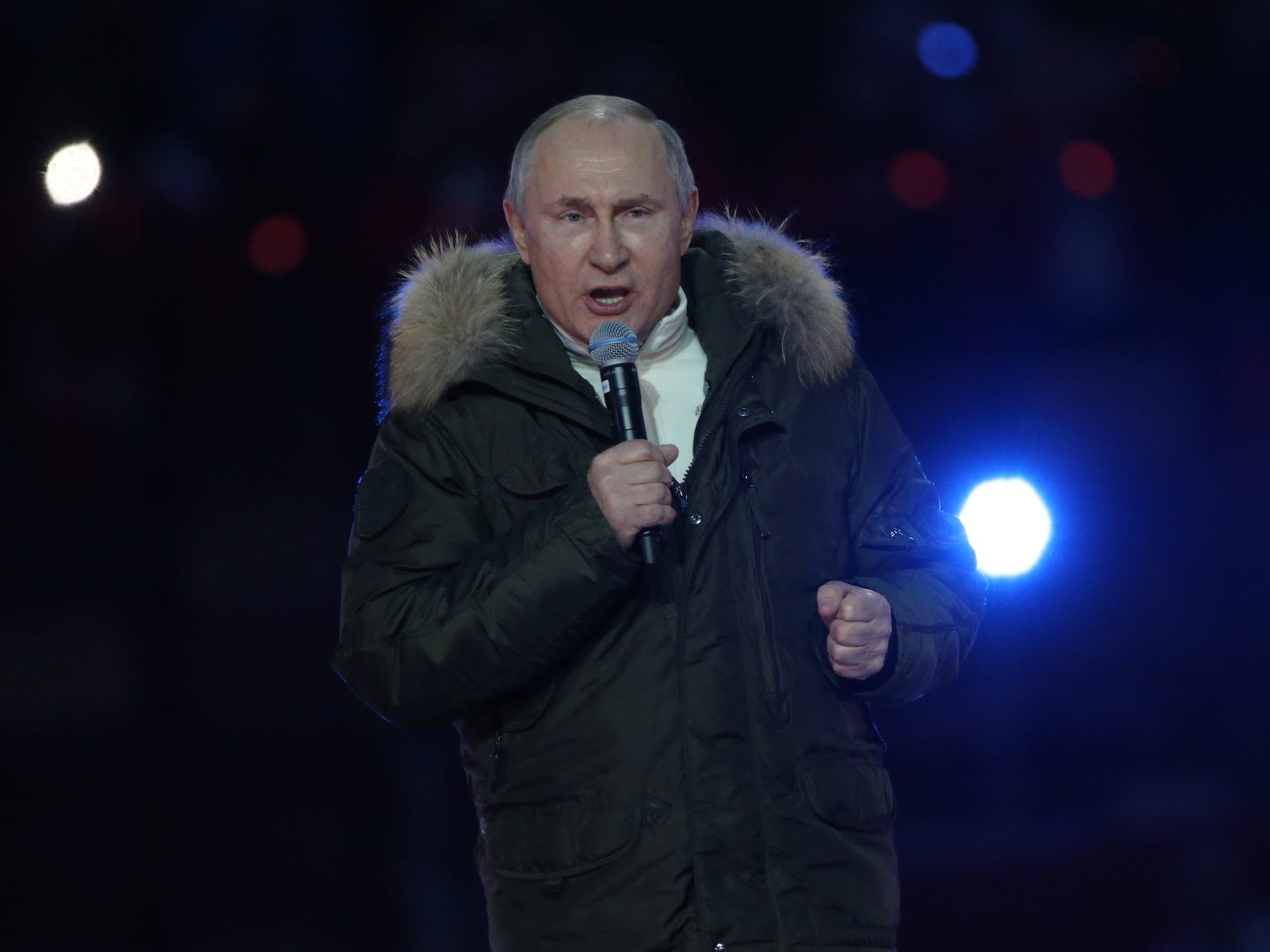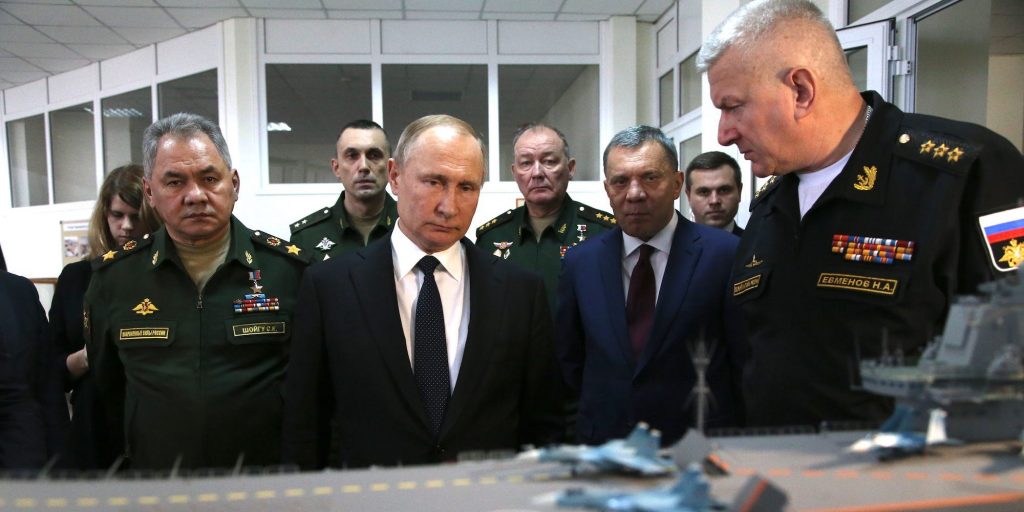
- Putin warned NATO that deploying troops or advanced missiles to Ukraine would cross a "red line."
- The Russian leader said Moscow would be forced to take action while boasting about Russia's hypersonic missiles.
- Hypersonic missiles are designed to be virtually unstoppable, and can fly at least five times the speed of sound.
Russian President Vladimir Putin on Tuesday warned NATO against crossing a "red line" in Ukraine, underscoring that Moscow would have no choice but to respond while boasting about Russia's hypersonic missile development.
Putin said that the deployment of NATO troops or advanced missile systems on Ukrainian soil that could strike Moscow within minutes would be a step too far for Russia. NATO has not taken any steps along these lines.
"If some kind of strike systems appear on the territory of Ukraine, the flight time to Moscow will be seven to 10 minutes, and five minutes in the case of a hypersonic weapon being deployed. Just imagine," Putin said.
"What are we to do in such a scenario? We will have to then create something similar in relation to those who threaten us in that way. And we can do that now," Putin added, referencing Russia's recent tests of a hypersonic missile.
Putin has said the Zircon hypersonic cruise missile, which is poised to enter service with the Russian Navy in 2022, is capable of flying nine times the speed of sound and has a range of roughly 620 miles, according to the Associated Press. On Tuesday, Putin emphasized that the missile could reach some targets within "just five minutes."
Hypersonic missiles are designed to be virtually unstoppable and are capable of flying at least five times the speed of sound. The US, Russia, and China are locked in a global arms race to develop hypersonic weapons.
A top Space Force official earlier this month said that the US is "not as advanced as the Chinese or the Russians in terms of hypersonic programs."

Putin's warning to NATO on Tuesday came amid fears that Russia is preparing to invade Ukraine.
For the second time this year, tens of thousands of Russian troops have amassed along Ukraine's border.
The Kremlin denies any plans to invade, while blaming NATO for the tensions. Ukraine has said that more than 90,000 Russian troops have gathered on its border, and Ukrainian President Voldymyr Zelensky last week warned that he'd uncovered a coup plot involving Russians. It's unclear what Putin will do next, but he has the region on edge.
Ivo Daalder, the US ambassador to NATO from 2009 to 2013, recently told Insider, "There is a major risk of Russian military activity in Ukraine in the next few months. All the signs point to a major build up of military capability."
The Russian president views the increased influence of the US and NATO in Ukraine, a former Soviet republic and Russia's nextdoor neighbor, as a major security threat. Ukraine is not a member of NATO, but maintains a robust partnership with the alliance.
Ukraine lies at the center of the contentious dynamic between Moscow and the West. In 2014, Russian forces entered Crimea and it was unilaterally annexed by Putin, prompting outcry around the world. And since that year, Kremlin-backed rebels have been fighting a war against Ukrainian troops in the eastern Donbass region. The conflict has claimed over 13,000 lives.
The US has provided over $2.5 billion in security assistance to Ukraine since 2014, and there's bipartisan support in Congress for increasing that aid.
Putin on Tuesday suggested that Russia and the West need to reach new security agreements in order to avoid further conflict, the Associated Press reported.
"The matter is not whether to send troops or not, go to war or not, but to establish a more fair and stable development and taking into account security interests of all international players," Putin said. "If we sincerely strive for that, no one will fear any threats."
Secretary of State Antony Blinken on Tuesday warned Russia that "renewed aggression" to Ukraine "can trigger serious consequences."
